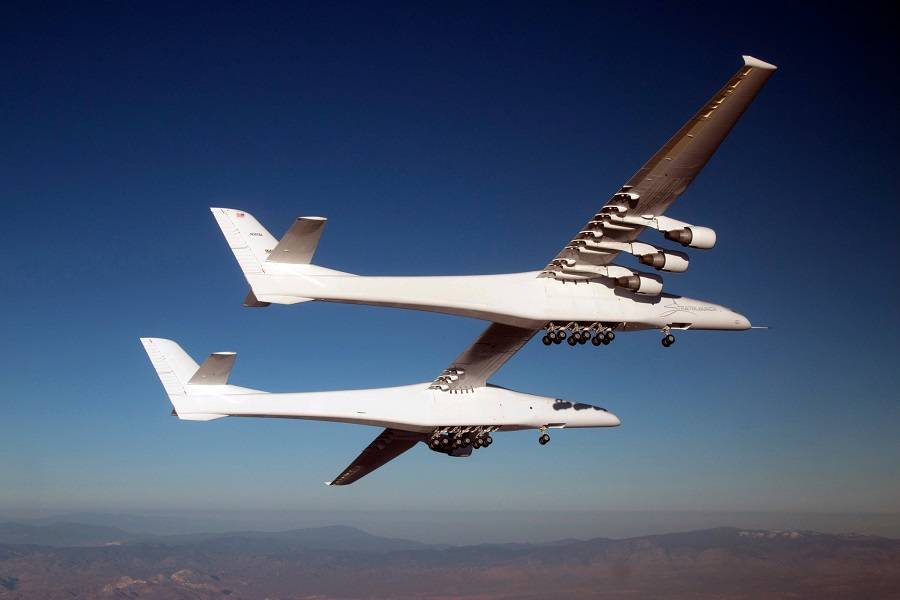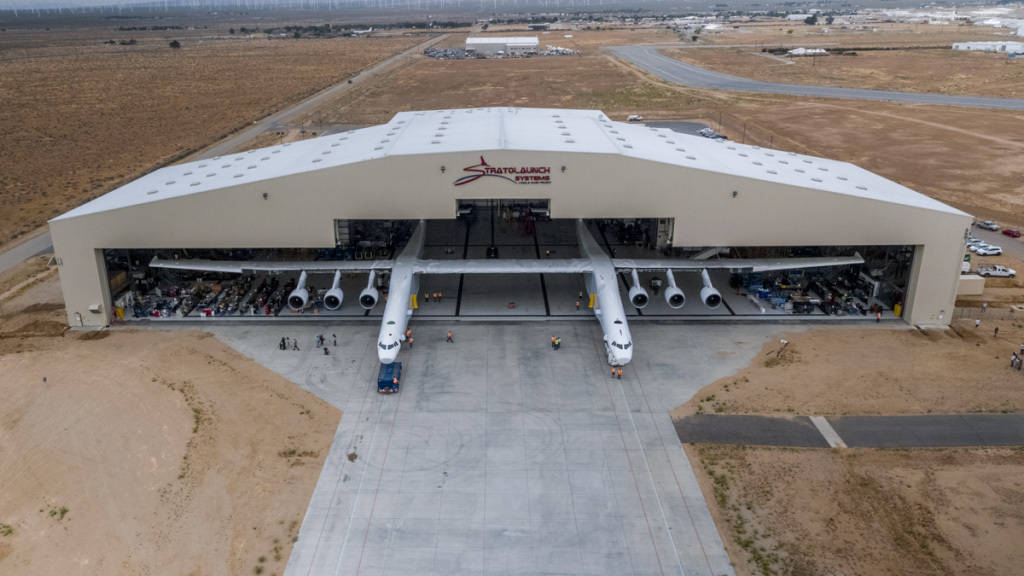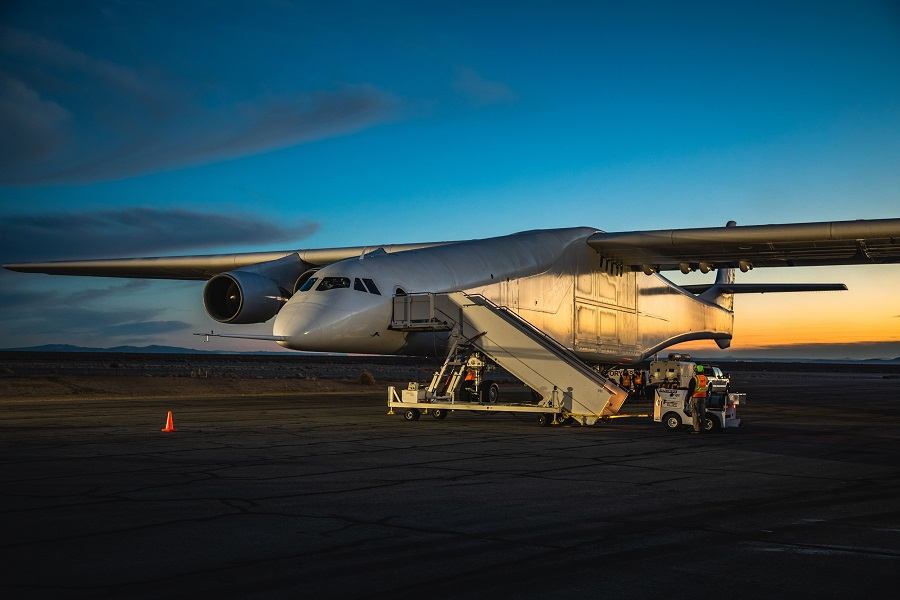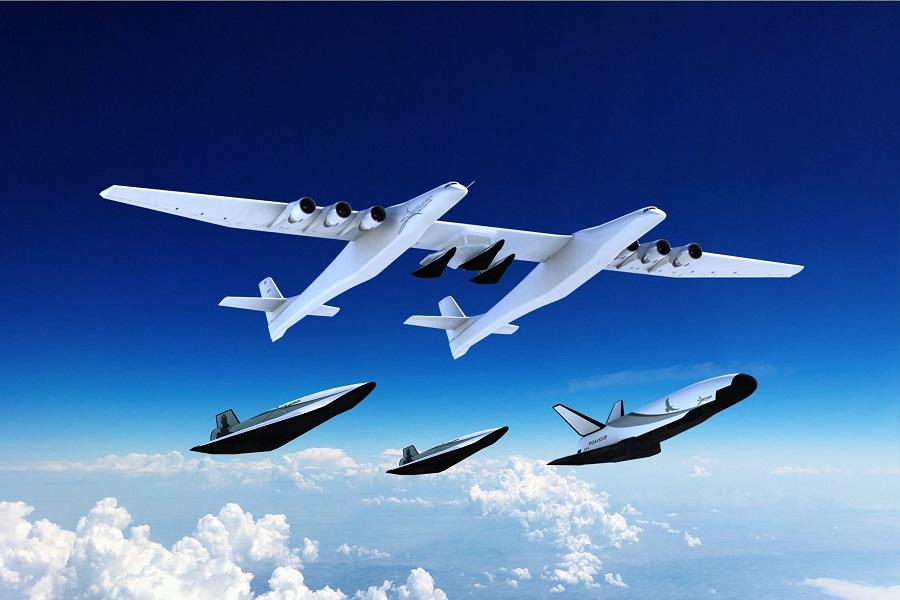Reports suggest that Stratolaunch ROC, the aircraft with the largest wingspan ever, is conducting test flights for the first time since 2019!
The news is coming from flight tracking site FlightRadar24, that caught the giant plane flying. Rather, they first caught its chase plane, a Cessna 550 Citation. The Stratolaunch ROC doesn’t have ADS-B, so tracking it is only possible by using multilateration (MLAT). This is less accurate and consistent, so following the flight this way is problematic.

Nevertheless, it is possible to see the Stratolaunch ROC in flight in this way. As of this writing it is still in the air, after over three hours! The last time the enormous aircraft was in the air was in April of 2019, over two years ago. If you want to check if it is still it the air, look for N351SL.
The Stratolaunch ROC is the only aircraft in history to have a larger wingspan than the Hughes ‘Spruce Goose’ H-4 Hercules. It uses six Pratt & Whitney PW4056 turbofans, that came from retired 747s. The 747 also provided systems like avionics, landing gear, hydraulics and the entire cockpit and cockpit windows!

The Stratolaunch ROC’s Search For A Role
Hughes’ Spruce Goose only performed one short hop, never out of ground effect. The Stratolaunch ROC very nearly had as short a fate. It only made a handful of flights, because Paul G. Allen, Stratolaunch founder, sadly passed away in October 2018. With limited funding, the Stratolaunch company decided to continue pursuing the completion and first flight of the remarkable aircraft.
But its future thereafter was a big question mark. The manufacturer of the aircraft is Scaled Composites, the company that Burt Rutan founded. The purpose of the Stratolaunch ROC (originally the Model 351 ‘Stratolaunch) was air-launching of space rockets. In the very beginning, that space rocket was actually a version of SpaceX’s Falcon 9! However, SpaceX left the partnership in 2012, before construction of the plane began.

The project was a partnership, involving companies like Dynetics, Scaled Composites and SpaceX, with funding from Paul Allen’s Vulcan investment group. Without SpaceX, the company providing the launch vehicle would be Orbital Sciences, with Pegasus II. This was to be the successor to Pegasus XL, which was air-launched under a Lockheed L-1011 Tristar, similar in concept to the Cosmic Girl.
Going Alone And New Ownership
Eventually, that partnership also failed, with Stratolaunch designing their own space vehicle for the ROC aircraft. Development of this vehicle stopped early in 2019, before the first flight of Stratolaunch ROC. The company’s assets, including the aircraft and its massive hangar in Mojave Air and Space Port Airport (KMHV) are now the property of Cerberus Capital Management.

Under Cerberus, the company is now promoting the Stratolaunch ROC as a platform for hypersonic vehicles. The company states that development of the first, Talon-A, is ongoing and that they have funding to reach its first flight. ROC’s layout is certainly unusual. However the first idea for such a vehicle is much older! In the mid-1970s, NASA had its eye on a similar concept, to carry the Space Shuttle. It was called the Conroy Virtus, and consisted of two B-52 fuselages!

Whatever the Stratolaunch ROC’s future holds, the fact that this giant is back in the sky, has to be a good thing. Today it appears to be flying between 12,000 and 14,000 feet. Operationally, it should reach 35,000 feet. We will report back with more news, when it’s out there!



